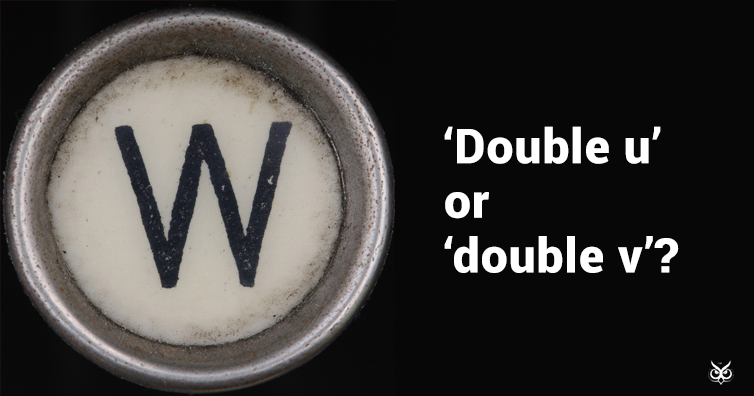The other day we posted on our page that the letter “W” is the only letter in the English alphabet that has more than one syllable. And even though that’s a pretty cool info on its own, soon enough, people started asking: shouldn’t it pronounced double-v instead of double-u?
Well, because here at I’m A Useless Info Junkie we will never leave you hanging, here’s the answer to this indeed, reasonable question.
It all has to do with the fact that Old English is using the Latin alphabet that was used by the Romans. This alphabet however, did not have a letter that could represent the speech sound of “W” that was used in Old English. The letter “v” was quite close but as the years went by, the language shifted and “v” became a voiced bilabial fricative – just like it’s used in words such as “vampire”. Meanwhile, “u” was starting to form the sound of “v” and therefore it gained an important role on shaping the letter “W”. (the article continues after the ad)
During the 7th century, to distinguish the sound from either “v” and “u”, scribes started writing double u (uu) for “W” while they were also using the new runic symbol – the wynn. When in 1300, French-speaking Normans ruled England, they transformed Old Engish to Anglo-Saxon into Middle English. Because in Anglo-Saxon “W” shifts to “v” as in other Germanic languages, and due to the fact that early printers used “vv” in lack of a “W” in their type, the name double-u was used as a reference to the former identity of “u” and “v”. That’s why a lot of words relate to that origin: guard/ward, flour/flower or Suede/Swede.
If you like what you read, then you will definitely love this one: Is Zero An Even, An Odd Number Or Neither?
Photo: Leo Reynolds / Flickr
Photoshop: I’m A Useless Info Junkie
Sources: If “w” is double u, why is it made of two v’s? | Why is ‘w’ pronounced ‘double u’ rather than ‘double v’?



